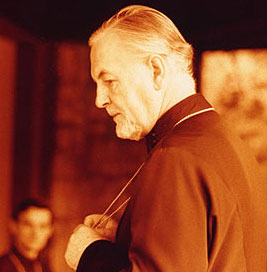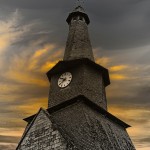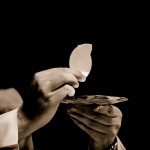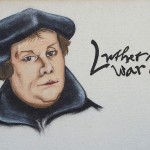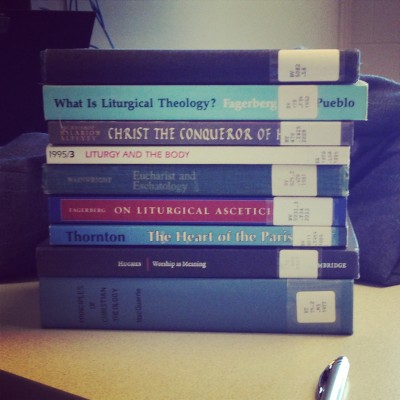This post is part of an ongoing series entitled, “Sunday with Schmemann.” If you have not yet read some of Fr. Alexander Schmemann’s works you can begin with my inaugural post here. My first doctoral writing assignment focuses exclusively on Schmemann’s writing corpus and liturgical theology.
Today marks the 32nd anniversary of Fr. Schmemann’s “falling asleep.” May Fr. Schmemann rest in peace and rise in glory! Memory eternal!
Fr. Schmemann wrote heavily on the theme of liturgical time. I made my own attempt to talk about “Learning to Tell Time Liturgically” here. He is insistent upon the eschatological nature of liturgy and time. That is, he emphasizes the transformation of time through the first advent of Christ as the means by which we await his second coming. We are caught in between these two advents and our very understanding of time and worship ought to reflect this reality. He writes:
The event which is “actualized” in the Eucharist is an event of the past when viewed within the categories of time, but by virtue of its eschatological, determining, completing significance it is also an event which is taking place eternally. – Introduction to Liturgical Theology, 72.
For Fr. Schmemann, and for all Christians, the crucifixion of Jesus Christ and the resurrection of the Son of God is the center point of human history. Israel’s story with God finds its climax and fulfillment in the sacrifice of the Faithful Israelite. The Church is gathered up and grafted into Israel’s history and memory and thus looks forward to the time when Christ shall come again and bring the fullness of his Kingdom.
The Eucharist is therefore far more than a mere memorial. Time is utterly other and utterly real in the celebration of the Eucharist. He continues:
The Eucharist is therefore the manifestation of the Church as the new aeon; it is participation in the Kingdom as the parousia, as the presence of the Resurrected and Resurrecting Lord. It is not the ‘repetition’ of His advent or coming into the world. But the lifting up of the Church in His parousia, the Church’s participation in His heavenly glory. – Introduction to Liturgical Theology, 72.
When God is finally our all in all, when his new heaven and new earth are made real and fully known, our participation in His heavenly glory will be all that we know. We look forward to the eschatological banquet with great joy, hope, and excitement but such a look toward Christ does not mean that we turn away from the world.
In other words the eschatology of the Eucharist is not ‘world renouncing,’ not a turning away from time, but above all the affirmation of the reality, the certainty and the presence of the King of Christ which is ‘within,’ which is already here within the Church, but which will be manifest in all glory only at the end of ‘this world.’ – 73
Our response to participating in the Eucharist is to offer ourselves for the life of the world. We love as He loves. We are present as He is present. We offer ourselves as the presence of Christ so that others may know Him fully. “But this expectation is not a passive state, it is a responsible service—it is to ‘be as He was in this world,'” (p. 74). This is why we celebrate the Eucharist and the Daily Office: that our time may be transformed through Christ and that we may invite others to participate in His renewing of all things. The Eucharist is the pinnacle of the Church’s worship and therefore has ramifications and implications for the whole of Christian life.

